Indigenous Governance Database
Secretary of Interior approval clause
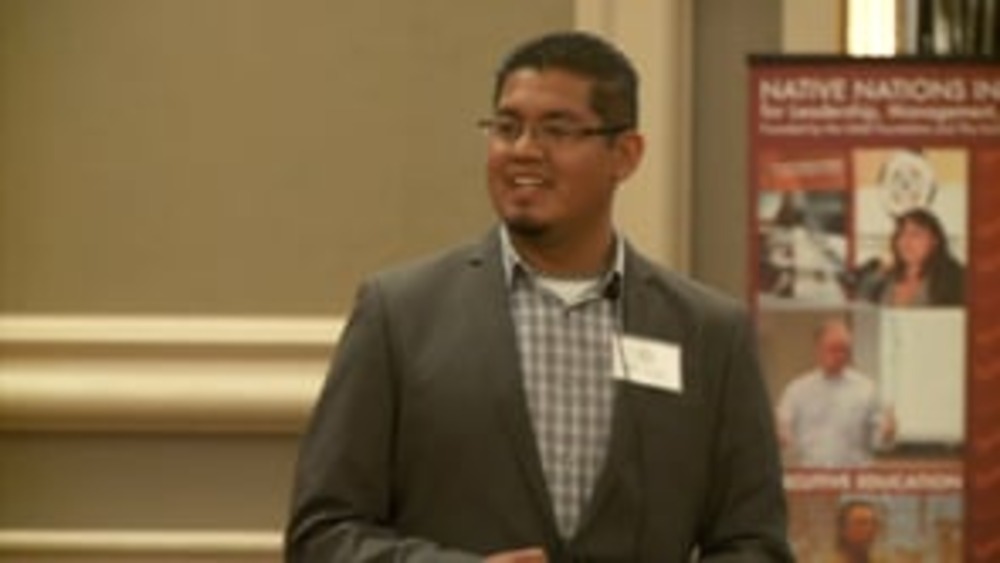
Andrew Martinez: Constitutional Reform: The Secretarial Election Process
Native Nations Institute's Andrew Martinez (Salt River Pima-Maricopa Indian Community) gives participants a concise and informative overview of how the secretarial election process works when Native nations amend their constitutions, and what happens (and doesn't) when Native nations remove…
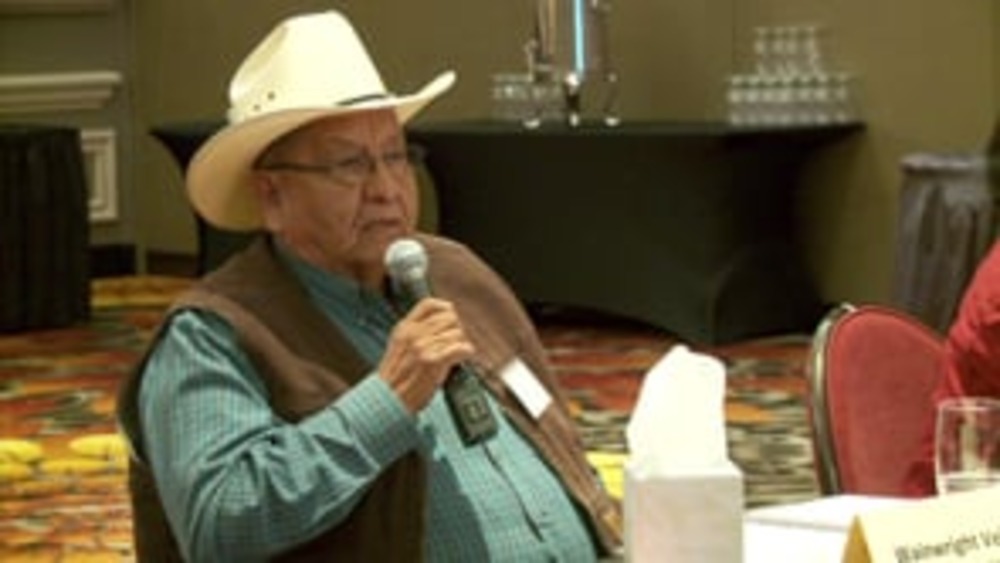
Robert Hershey and Andrew Martinez: The Legal Process of Constitutional Reform (Q&A)
Robert Hershey and Andrew Martinez engage participants in a lively discussion about the intricacies of secretarial elections and whether and how Native nations with Indian Reorganization Act constitutions should remove the Secretary of Interior approval clause from those governing documents.
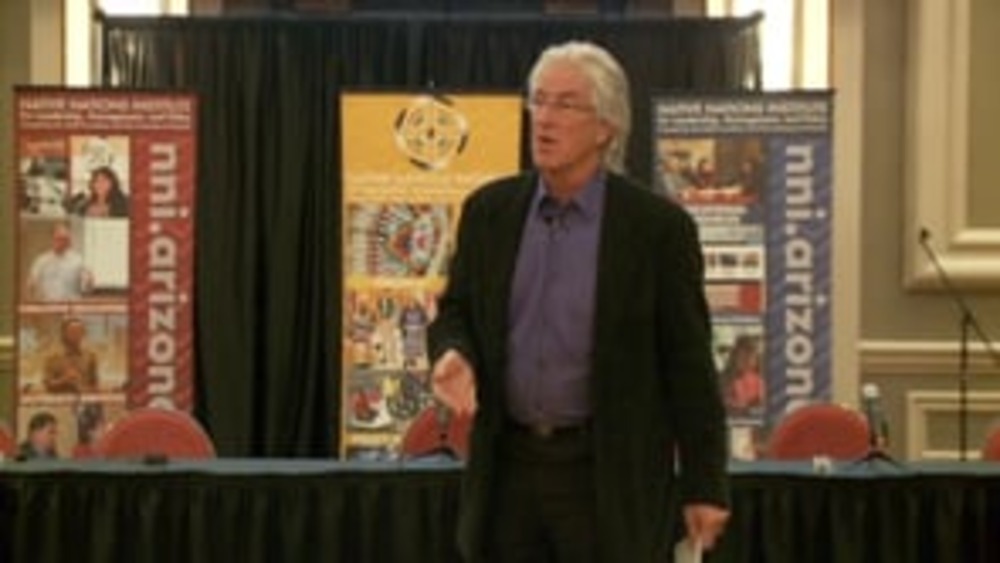
Robert Hershey: Dispelling Stereotypes about the Federal Government's Role in Native Nation Constitutional Reform
Robert Hershey, Professor of Law and American Indian Studies at The University of Arizona, dispels some longstanding stereotypes about what the federal government can and will do should a Native nation decide to amend its constitution to remove the Secretary of Interior approval clause or else make…

Jennifer Porter: Cultural Match Through Constitutional Reform at Kootenai
In this informative interview with NNI's Ian Record, Vice-Chairwoman Jennifer Porter of the Kootenai Tribe of Idaho explains what prompted her nation to enact several amendments to its constitution in the mid-1990s, and how its ability to govern effectively has been greatly enhanced by its decision…
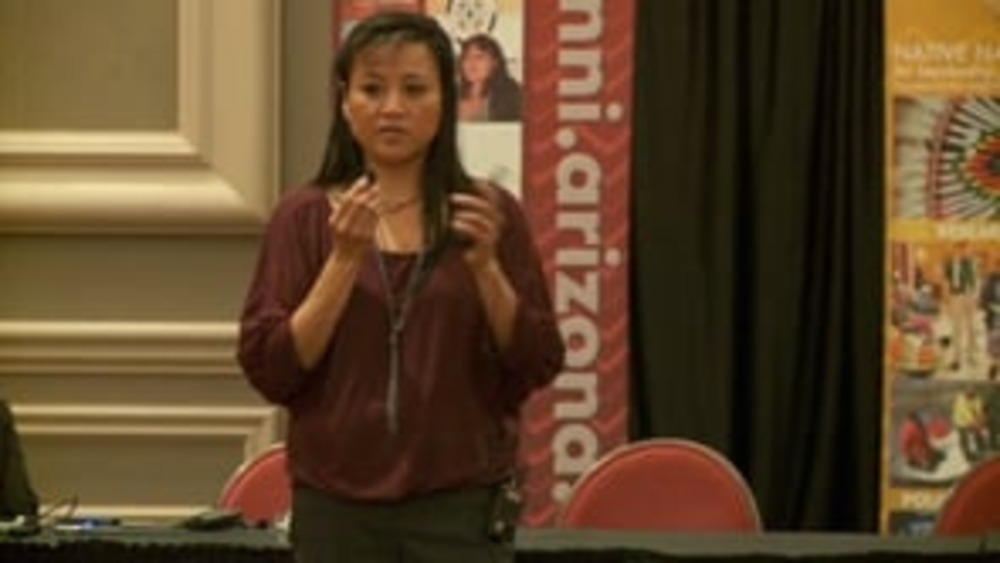
Jennifer Porter: The Kootenai Tribe: Strengthening the People's Voice in Government Through Constitutional Change
Jennifer Porter, former chairwoman and current vice-chairwoman of the Kootenai Tribe of Idaho, discusses how her nation moved to amend it constitution to change its basis of political representation, how the U.S. Secretary of Interior and the Bureau of Indian Affairs (BIA) tried to block the move,…
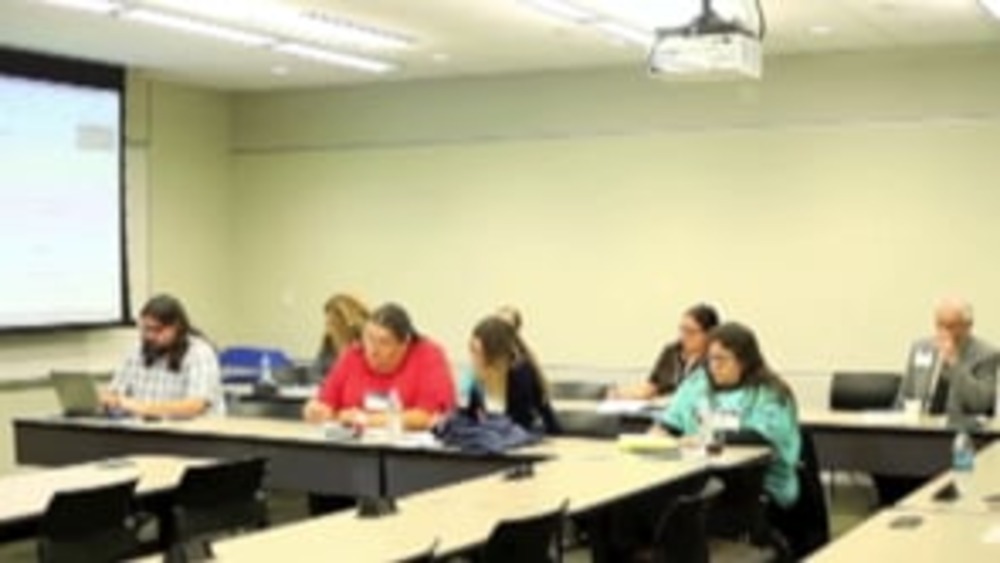
Good Native Governance Break Out 3: Tribal Constitutional Revitalization
UCLA School of Law "Good Native Governance" conference presenters, panelists and participants Melissa L. Tatum, Devon Lee Lomayesva, and Jill Doerfler discuss constitutional reform efforts. Melissa describes the purpose of consitutions. Using her own Nation's experience, Devon discusses the Iipay…
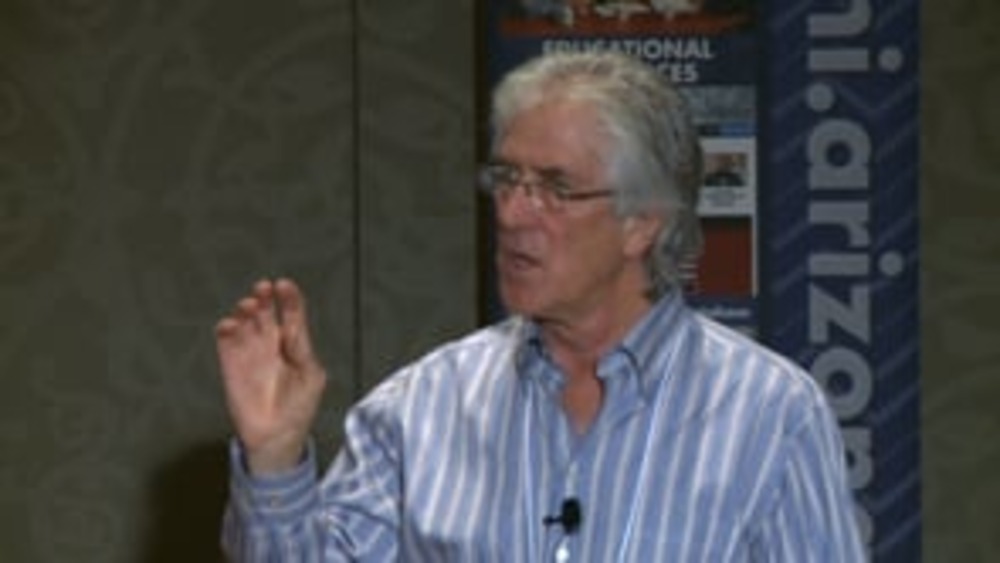
Robert Hershey: The Legal Process of Constitutional Reform
Robert Hershey, Professor of Law and American Indian Studies at the University of Arizona, provides an overview of what Native nations need to consider when it comes to the legal process involved with reforming their constitutions, and dispels some of the misconceptions that people have about the…
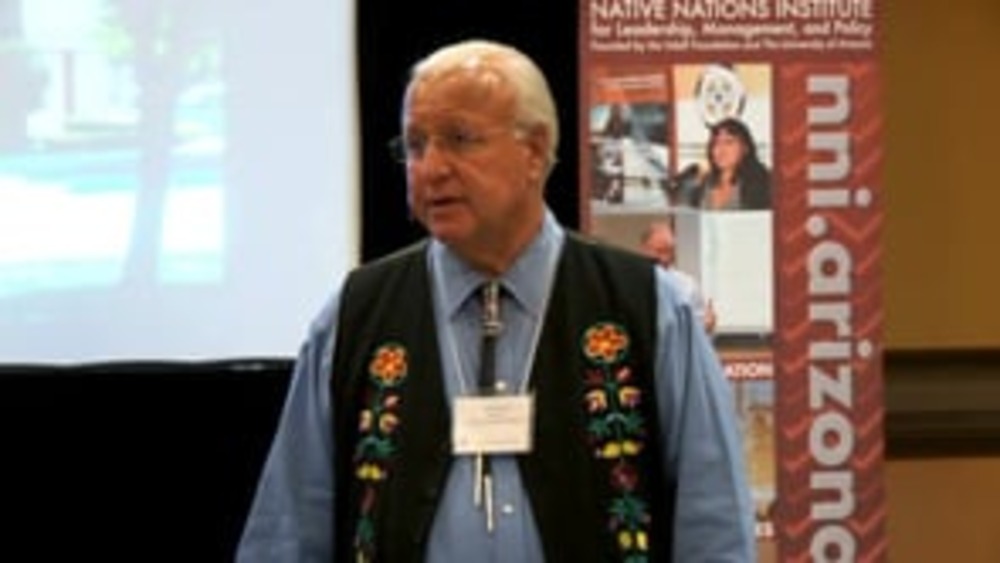
John "Rocky" Barrett: A Sovereignty "Audit": A History of Citizen Potawatomi Nation Governance
Citizen Potawatomi Nation Chairman John "Rocky" Barrett shares the history of the Citizen Potawatomi Nation and discusses its 40-year effort to strengthen its governance system in order to achieve its goals.
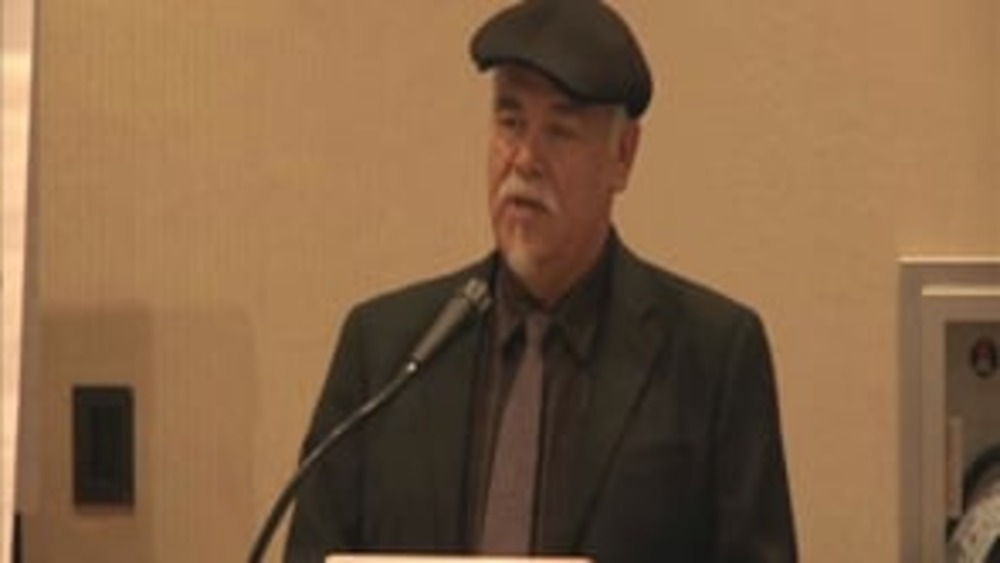
Virgil Edwards: How Are We Going About Remaking Our Constitution?
Blackfeet Constitution Reform Committee Member Virgil Edwards discusses the process the Blackfeet Nation devised to reform its constitution, and describes how politics ultimately derailed the process before it could produce a new constitution for the Blackfeet people. This video resource is…
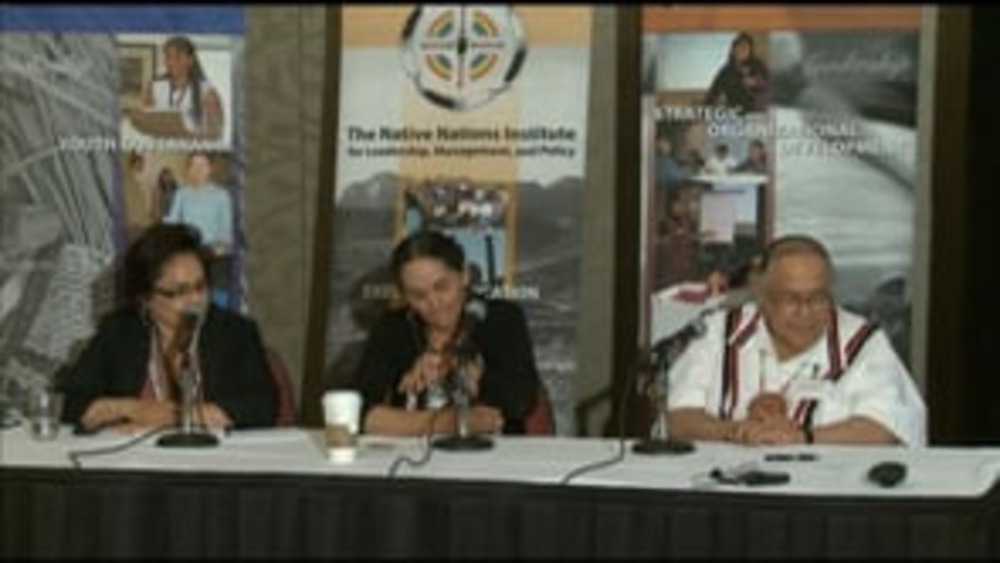
Frank Ettawageshik and Gwen Phillips: Reforming Our Nations' Constitutions: What We Did and Why (Q&A)
Frank Ettawageshik, former Chairman of the Little Traverse Bay Bands of Odawa Indians, and Gwen Phillips, Ktunaxa Nation Director of Corporate Services and Governance Transition, field questions from the audience about their presentations detailing how their nations either reformed or are in…
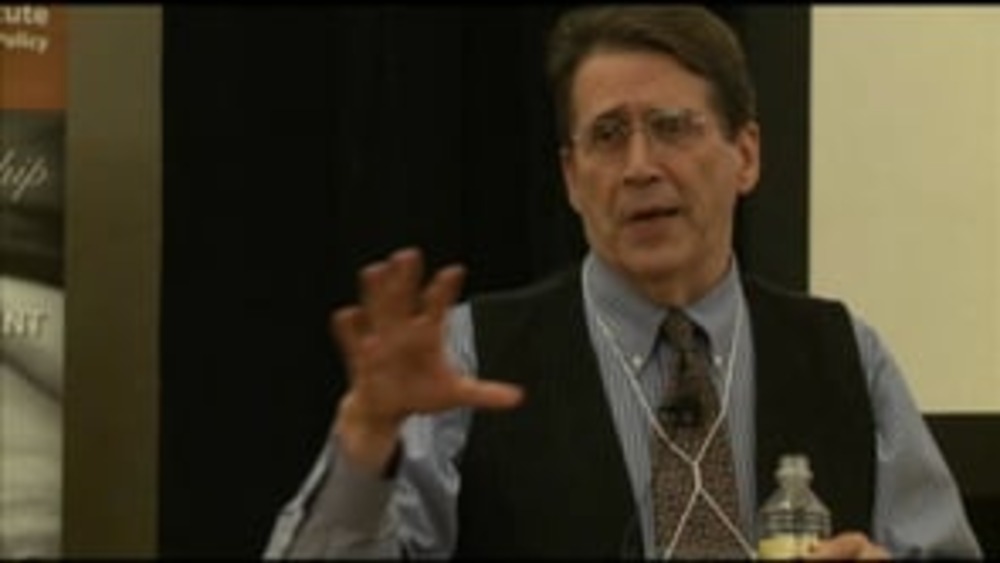
Frank Pommersheim: A Key Constitutional Issue: Dispute Resolution (Q&A)
University of South Dakota Professor of Law Frank Pommersheim fields audience questions about the importance of civic engagement to constitutional reform, removing the Secretary of Interior Approval clause from tribal constitutions, and other important topics.
Joan Timeche and Joseph P. Kalt: The Process of Constitutional Reform: Key Issues and Cases to Consider
Joan Timeche and Joseph P. Kalt share two stories of constitutional reform processes undertaken by Native nations and discuss what factors spurred or impeded the ultimate success of those efforts.
Julia Coates: The Process of Constitutional Reform: What the Cherokee Nation Did and Why
Cherokee Nation Councilor Julia Coates presents an overview of the constitutional history of the Cherokee Nation, and chronicles the process the Cherokee Nation followed to reform its constitution in 1999.
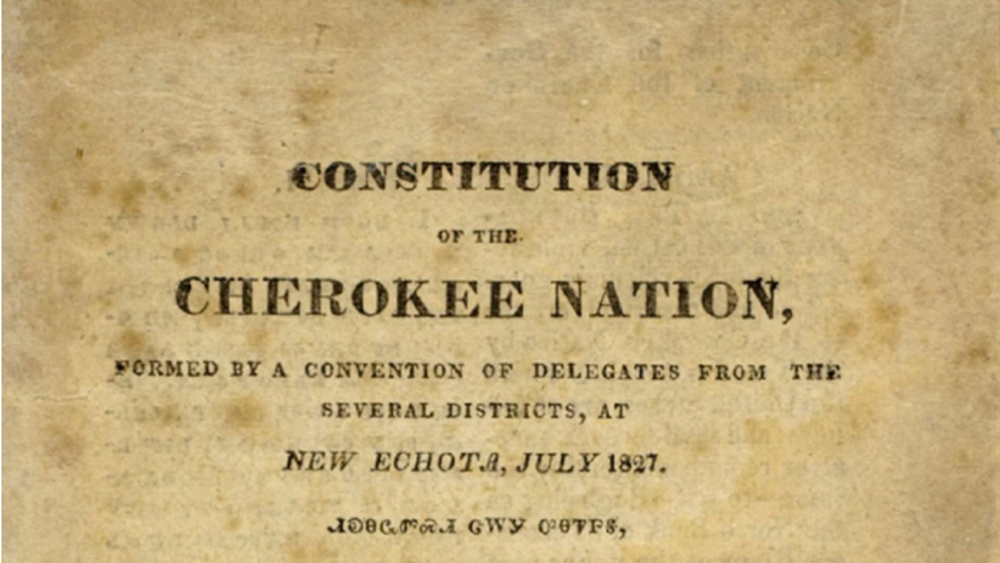
Tribal Constitutions
Modern tribal nations pass laws, exercise criminal jurisdiction, and enjoy extensive powers when it comes to self-governance and matters of sovereignty. And of 566 tribal nations, just under half have adopted written constitutions. In the American tradition, a constitution limits the power yielded…
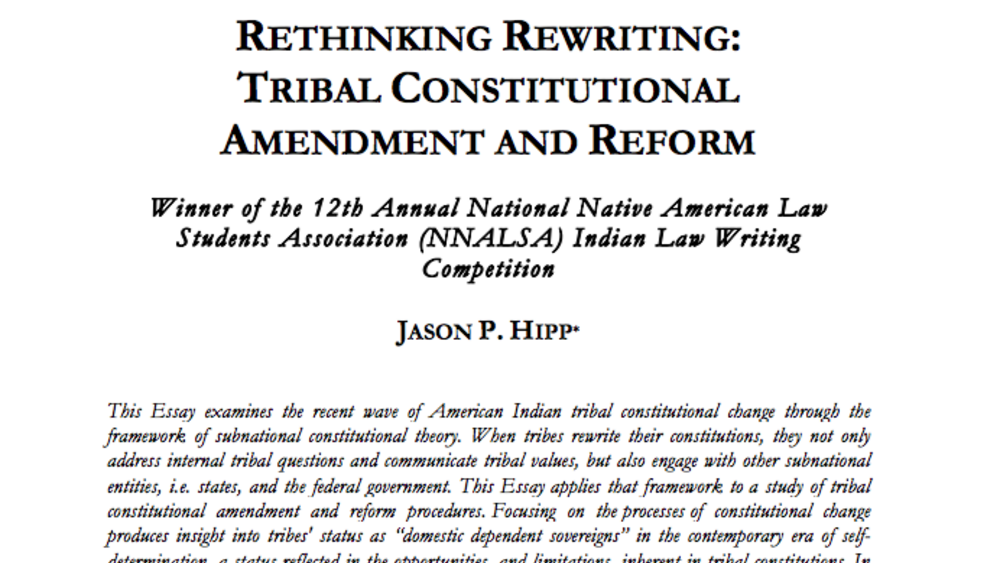
Rethinking Rewriting: Tribal Constitutional Amendment and Reform
This essay examines the recent wave of American Indian tribal constitutional change through the framework of subnational constitutional theory. When tribes rewrite their constitutions, they not only address internal tribal questions and communicate tribal values, but also engage with other…
